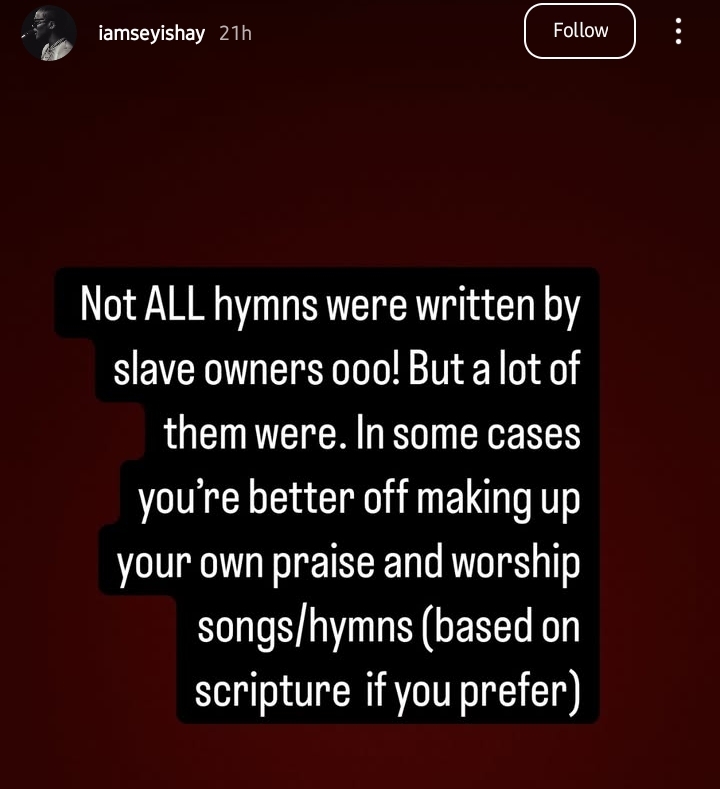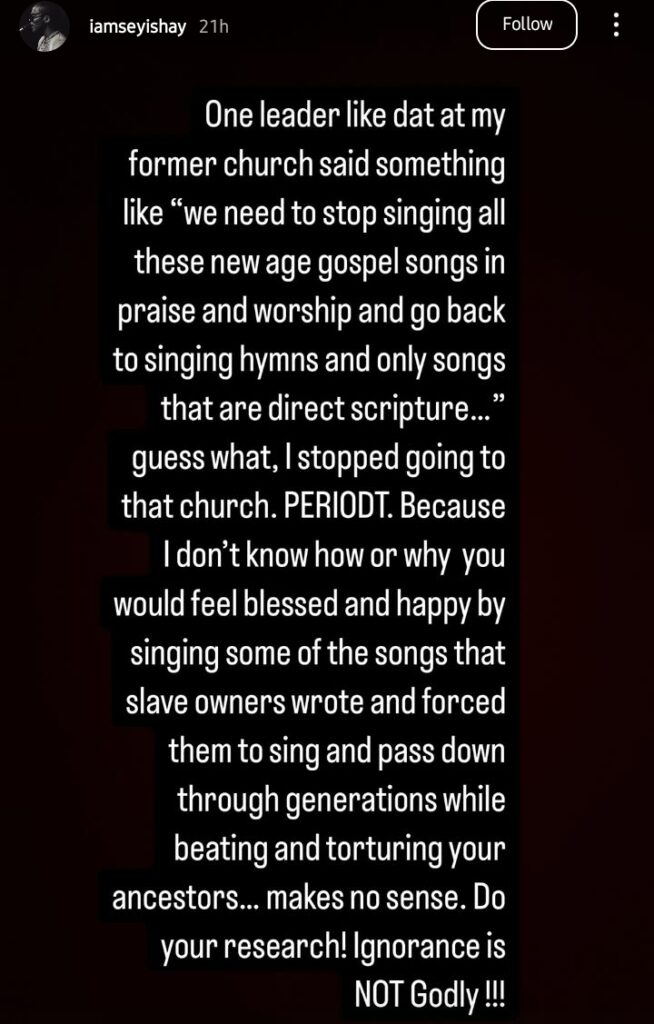Nigerian singer and songwriter, Deborah Oluwaseyi Joshua, popularly known as Seyi Shay, has opened up on the deeply personal reason she chose to stop attending her former church, citing rigid leadership and the controversial history of some traditional hymns.
Taking to her Instagram account social media, the award-winning artiste expressed her frustration with a directive from a church leader discouraging contemporary gospel music during praise and worship sessions.
READ ALSO: Obi Cubana’s wife fires back at social media critics over ‘next of kin’ comments
“One leader like dat at my former church said something like ‘we need to stop singing all these new age gospel songs in praise and worship and go back to singing hymns and only songs that are direct scripture…’ guess what, I stopped going to that church. PERIODT,” she declared.

Seyi Shay, known for her bold stance on social and cultural issues, did not mince words as she criticized the historical roots of some popular church hymns, particularly those with connections to slavery.

“Because I don’t know how or why you would feel blessed and happy by singing some of the songs that slave owners wrote and forced [enslaved people] to sing and pass down through generations while beating and torturing your ancestors… makes no sense. Do your research! Ignorance is NOT Godly!!!” she emphasized.
While acknowledging that not all hymns were born out of oppression, she urged believers to critically evaluate what they sing in worship and suggested a more personalized and conscious approach.

“Not ALL hymns were written by slave owners ooo! But a lot of them were. In some cases you’re better off making up your own praise and worship songs/hymns (based on scripture if you prefer),” she noted.
Seyi Shay’s comments have sparked conversation across social media, with some hailing her courage to speak truth to power, while others questioned the historical accuracy and implications of her assertions.
As debates continue over tradition versus modernity in religious spaces, her remarks shine a spotlight on the broader discourse of cultural awakening and decolonization of worship in African churches.

